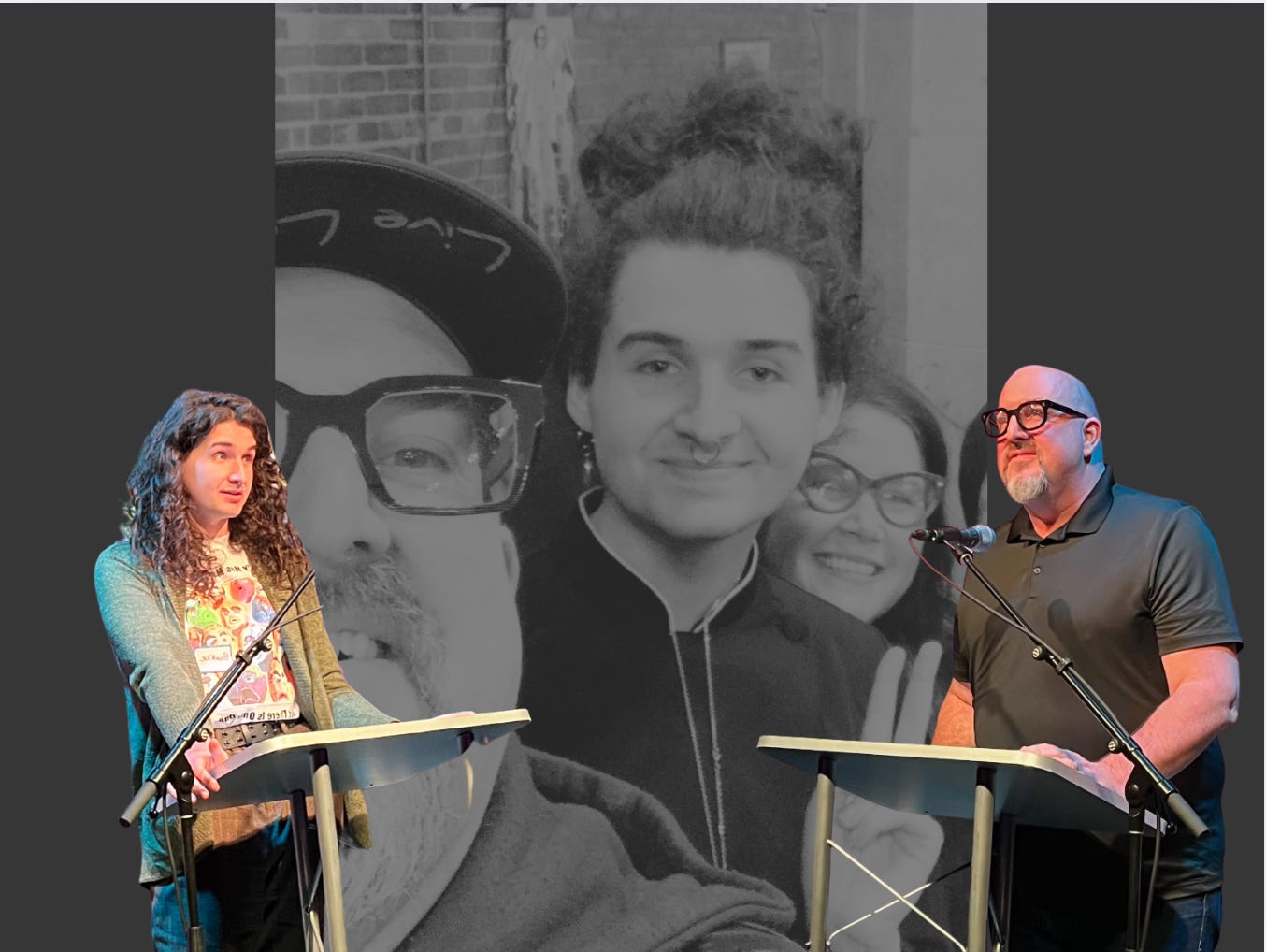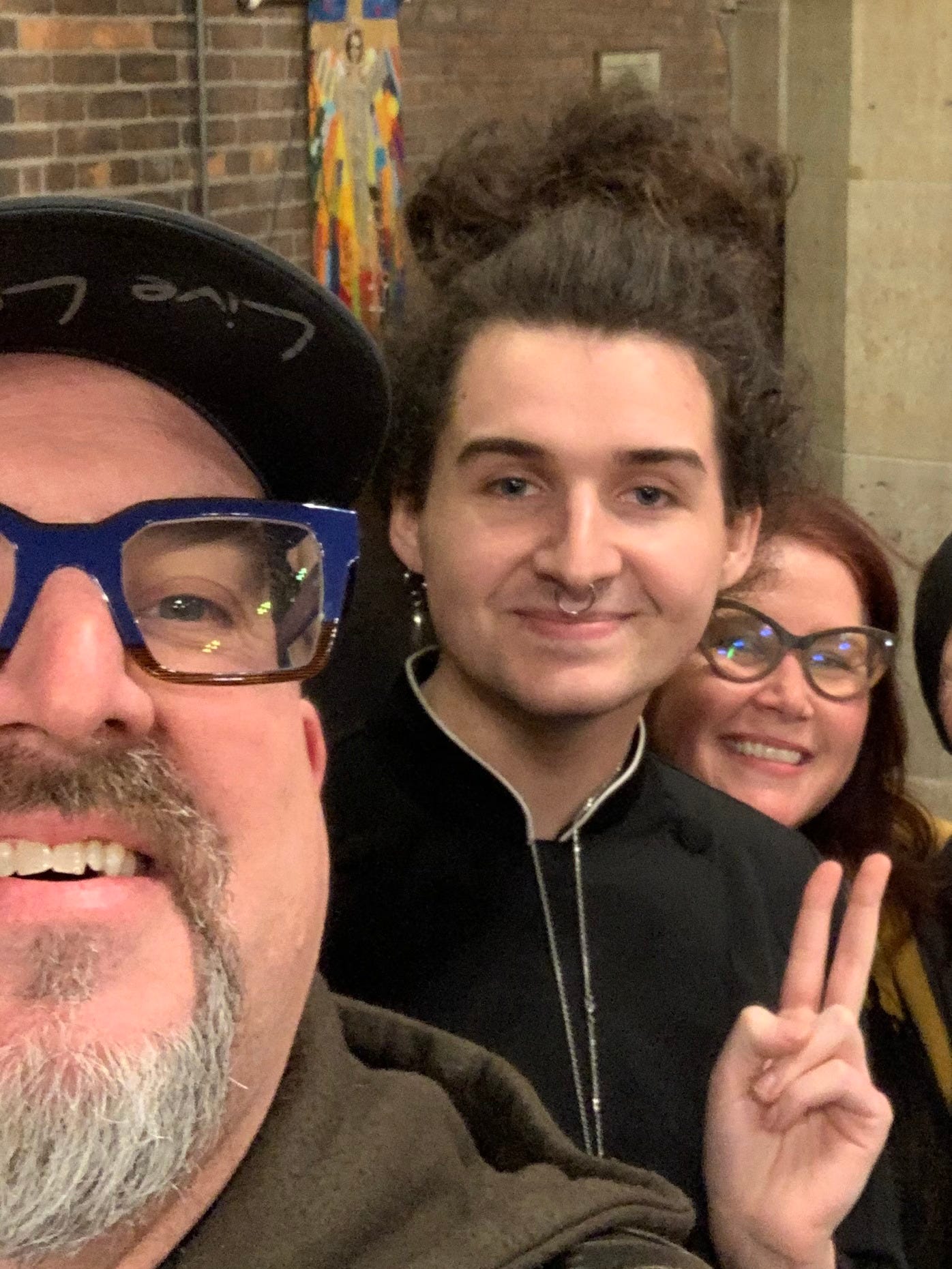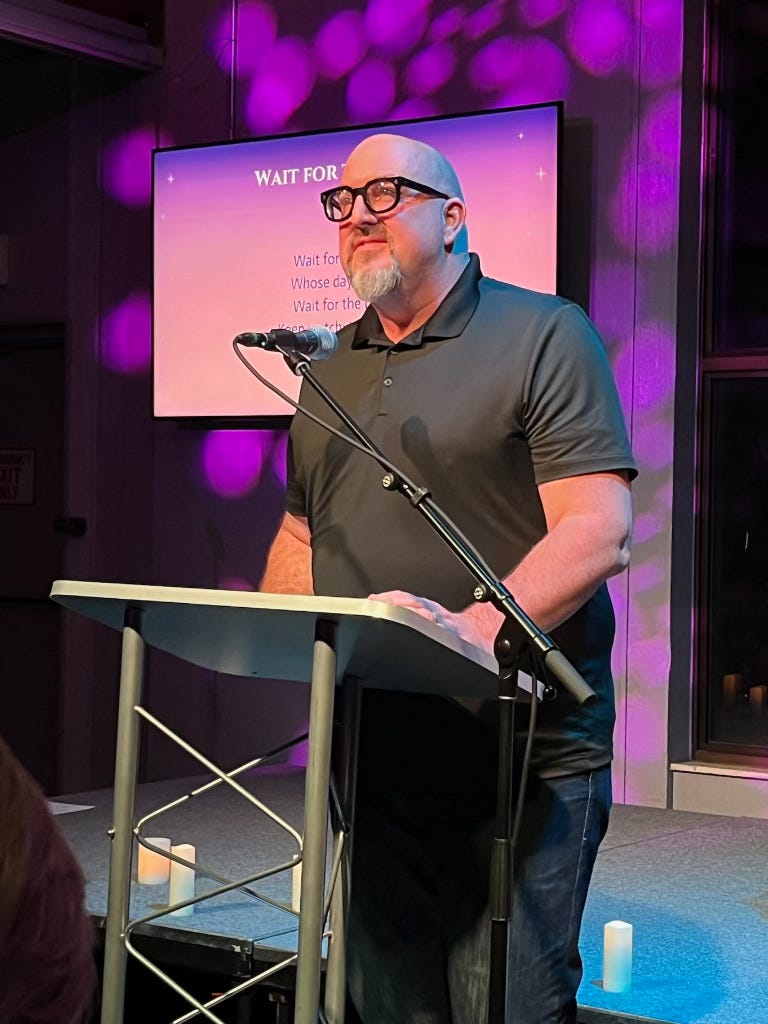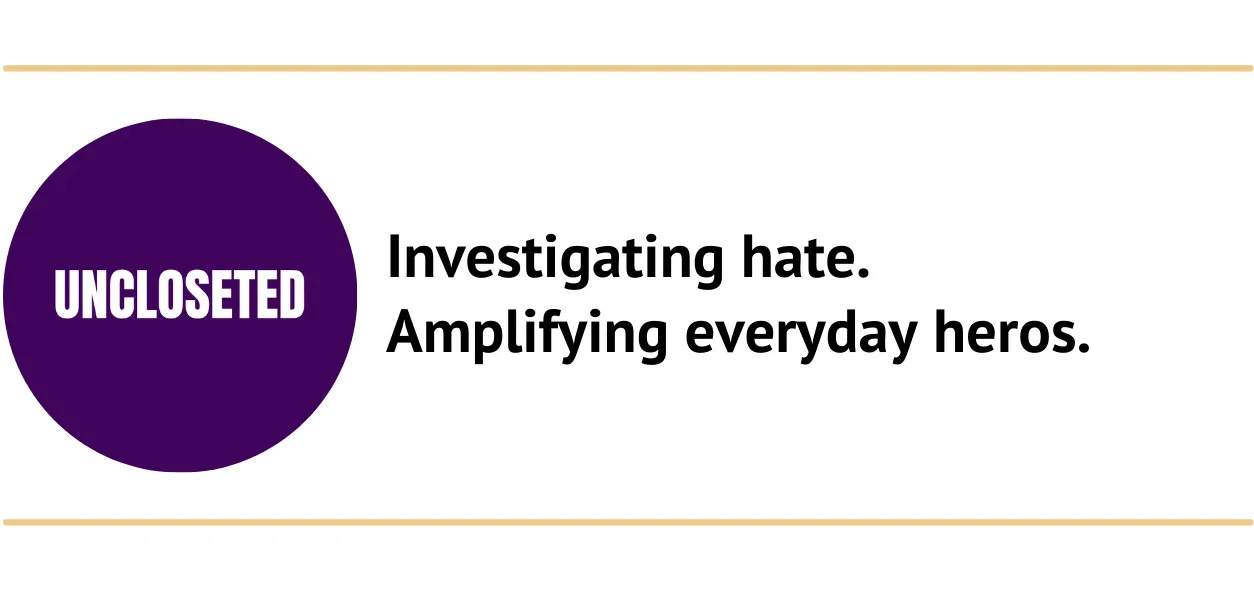How an Evangelical Pastor Became an Unlikely Ally to His Trans Daughter
“If someone has a crack of curiosity, there's hope that love can prevail.”
This story was reported in partnership with ‘Gander Newsroom, a pro-democracy newsroom in Michigan.
“Why can’t you fucking talk to me?” Beatrice Cox screamed at her father. “Why can’t you look me in the eye? Why can’t you call me by my name?”
It was 2021, and Danny Cox remembers looking at his child, then 22, and feeling a profound confusion. Growing up in the Catholic church and eventually becoming an Evangelical pastor, he remembered what he had been encouraged by different faith communities to believe about transgender people: mentally disordered, sinful and not made in the design of God.
It had been six months since his daughter, Beatrice, had come out as a trans woman. In that time, Danny had failed to accept her identity, refusing to call her by her name or use her pronouns.
As lead pastor of an Evangelical church in Troy, Michigan, he had long harbored doubts towards the mistreatment of queer people in Evangelical spaces. But when Beatrice came out to him as trans, he wasn’t ready to confront the tension between his faith and his family.
Though Danny, now 58, remembers reminding Beatrice that he loved her, he felt perplexed by her trans identity. “I looked at my wife, and I'm like, ‘What do I do? Because I don't understand this,’” he says.
This dynamic is pervasive in conservative Christianity, especially among Evangelicals. A 2022 analysis found that 87% of white Evangelicals believe gender is determined by sex at birth. And according to a 2023-2024 survey from the Pew Research Center, 61% of Evangelicals believe homosexuality should be discouraged by society. These numbers may explain why nearly half of LGBTQ people are estranged from their families.
Coming out was terrifying for Beatrice, now 26, who remembers being told in school that “gay people were the enemies of God.” Beatrice also worried about the cost of coming out in a religious community. “To be uncloseted was to lose access to everything that mattered to me,” she told Uncloseted Media and ‘Gander Newsroom.
But Beatrice was also afraid for her dad. She knew that as the lead pastor of an Evangelical megachurch, the consequences of having a queer child could be devastating. “I knew that coming out would threaten his whole life and stability,” she says.
Before coming out as trans, Beatrice first came out as a gay man. Though she feared losing her family and community, she was met with a positive reaction from her father. “I couldn’t make eye contact. I was sobbing through it,” Beatrice remembers. “He gave the best possible reaction to that level of tenderness and vulnerability.”
On the surface, Danny was affirming. But on the inside, he struggled. “It might be embarrassing to say, but truthfully, I remember saying, ‘Lord, no problem to have a gay, bi, or lesbian kid. I can do the LGB, just please don’t give me the T. Please don’t give me a trans kid, because none of that makes sense to me.’”
But a few years later, Danny’s fears came true when Beatrice came out as trans.
“His response was nothing but confusion,” says Beatrice. She recalls him repeatedly asking her what her new identity meant. The immediate support and validation that was there the first time she came out had disappeared.
For the next year, “we were actively adversarial,” says Beatrice. “For him, my being trans was insurmountable.”
Danny wouldn’t acknowledge Beatrice’s identity as a woman. He worried it was impossible to be LGBTQ-accepting without violating Biblical principles. “I was struggling theologically,” he says.
But his lack of acceptance was painful for Beatrice. “I took that to be ‘you’re not with me.’ … I had no idea what was going on with him.”
Though Beatrice and Danny were never completely out of touch during this time, their relationship was deteriorating. Danny describes a feeling of grief over having to say goodbye to the version of Beatrice he had previously known. “There is a deep mourning that happens in parents’ lives when their kids transition and they have to adapt to a new version of their children.”
But just over a year after Beatrice came out, their tensions reached a boiling point. “I was yelling at him,” Beatrice remembers.
After some back and forth, Danny broke down in tears. “‘I’m sorry Bea. I’m sorry Bea. I’m sorry Bea,’” Beatrice remembers her dad repeating over and over again.
“It was the first time he ever said my name,” she says, adding that he struggled to get the words out through his sobs and was speaking just above a whisper. This moment led to a breakthrough, with Danny finally sharing with Beatrice the emotions he had been holding back for the past year.
“I’m so scared for you. This world is not good,” Danny told Beatrice while apologizing for the pain he had put her through. He told Beatrice he associated being queer with having a harder life—something he didn’t want for his daughter. “The top fear was for her safety. And then I had my own fears: What does this really mean?” he remembers thinking. Though his apology didn’t instantly undo the pain he had put Beatrice through after rejecting her identity, it built a foundation to begin repairing the relationship.
“I realized everything he was doing was out of fear and not hate,” Beatrice told Uncloseted Media and ‘Gander Newsroom, through tears. “In that moment, all the delusions, all the bullshit, just shed away, and we're just human people, seeing each other for human people. And that's worth a lot. Not many people get that with their parents.”
“When that moment happened, it was an instant healing because Beatrice could let her guard down, too,” says Danny. “Once I said ‘Bea,’ it’s almost as if the veil was lifted.”
Since that day, Danny and Beatrice have worked to heal their relationship. Danny left his church and is now being ordained as a priest in the Episcopal Church, where gay congregants have had equal standing for almost 50 years. Danny proudly refers to Beatrice as his daughter, uses her correct pronouns and affectionately calls her by the nickname “Bea.”
“I can’t think of a word other than ‘ferocious’ that describes what he’s done,” says Beatrice, referencing his allyship. “It’s extraordinarily brave and extraordinarily beautiful,” she says, adding that she no longer carries any anger towards her dad. “[He’s] a friend, a father, and a co-conspirator.”
Though the two of them have come a long way, Danny still carries guilt. “I’m ashamed that I stayed as long as I did, and I’ve repented,” he says. Since Beatrice came out, Danny has founded an organization called The Open Table Collective, which provides a space for people to wrestle with issues of faith. Through the collective, he and Beatrice now tell their story through public speaking events and on their own podcast in hopes of proving that religion doesn’t have to be a barrier to accepting queer identities.
As far as Danny is concerned, parents of queer kids can do one of two things: “They shun the person, or they go, ‘Whoa, this is the person that I love, and I have to start reevaluating my life and the way that I think.’”
To him, the most important thing is not to shut someone out just because of fear or a lack of understanding. “If someone has a crack of curiosity, there's hope that love can prevail and that our human experience can bring us closer together.”
If objective, nonpartisan, rigorous, LGBTQ-focused journalism is important to you, please consider making a tax-deductible donation through our fiscal sponsor, Resource Impact, by clicking this button:








Wish they could talk to my parents. I miss them.
It's good to see someone overcome the fear and prejudice to love his child ❤️